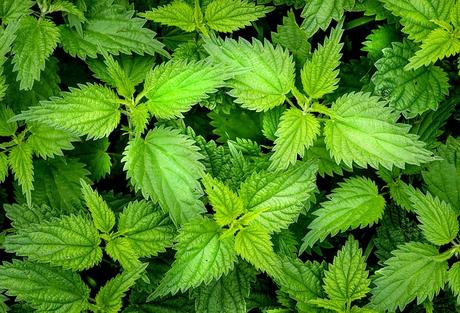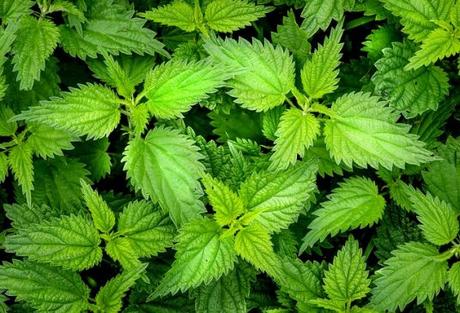

The nettle (urtica dioica) is a flowering plant of the family urticaceae used for millennia by herbalists, breeders and farmers alike.
Making nettle tea may seem surprising to some people. Yet the entire stinging nettle is a source of health benefits. From seeds, to leaves, to flowers, stems, and roots, all parts of this plant have medicinal properties.
However, the benefits discussed in this article are primarily focused on the flowering tops and aerial parts of the nettle. They are rich in iron, calcium, silicon, chlorine, magnesium, manganese, potassium, sulphur and zinc.
The health benefits of stinging nettle
The first time I drank nettle tea I had just celebrated my eleventh year. I only knew this plant by the cholinergic urticaria (skin rash) that it caused during my escapades in the forest, in my grandmother's garden, or when I sometimes heard of nettle soup.
The taste experience nettle as a drink was strange, but very positive. Purchased from a traditional herbalist that I adore (a Swiss herbalist founded in 1936 in Strasbourg, France), the ortie floriferous sommities were intended to help me fight the acute lymphoblastic leukemia (all) that had been hitting me for a few months.
Indeed, it was when I had blood cancer that nettle came into my life - along with other medicinal plants and potions like the Swedish Elixir, black radish juice and royal jelly. Since then, I have added Japanese green tea, matcha green tea, turmeric and cocoa.
Stinging nettle (urtica dioica)
This plant has contributed to my well-being throughout my remission. I would say that nettle essentially cleaned my body of the chemicals I ingested, while awakening my senses and palate to regain appetite and taste.
In a cancer treatment in the 1980s, chemotherapy destroyed everything in its path and sometimes the food tastes the same. Nettle tea has long been part of my daily routine, in addition to other medicinal plants such as lavender, thyme and horsetail.
What is nettle tea ?
What is nettle tea ?
A powerful beverage with many health benefits, nettle Tea is typically made from the leaves and stems of the plant, or from nettle flowers. This herbal tea has been used as a natural remedy since the dawn of time for a range of ailments, including muscle and joint pain, urinary disorders, allergies, skin irritations, and digestive problems.
Nettle Tea is best bought in bulk and in herbalism. If you have a nettle field near you or on your land, be careful that the plants are not polluted or contaminated by any product (pesticides, etc.).
How to pick nettles ?
Through the leaves and stem, there are tiny hollow hairs (hives) that release histamines and other chemicals. They produce a burning and stinging sensation when they come in contact with the skin.
To pick fresh nettles, you will have to put on gloves and be sure that this is the right variety you are looking for. Personally, I consume mainly white nettle (Lamium album), which is very present in the Lorraine region (France), in the territory of Belfort, the Charente-Maritime, the Hérault, the Aude, the Lozère, the Aveyron, the Côtes-du-Nord or the Alpes-Maritimes.
Then soak and boil them (stems and leaves), like a kind of bleaching. For my part, I have always opted for the solution of herbalism, buying both flowers, and leaves and stems.
The price of the floriferous Springs is quite high, but the power is there. It all depends on the desired treatment. Personally, I make a mixture before infusion with 1/3 of flowers and 2/3 of stem leaves.
9 health benefits of nettle tea
9 benefits of nettle tea
In its natural state, stinging nettle stimulates an allergic reaction when its fine hairs touch the skin. But when stinging nettle is prepared in herbal tea, it can help soothe allergies. Research shows that plant extract inhibits inflammatory reactions related to seasonal Allergy symptoms.
Often used as a natural remedy against hay fever, one study reports that 48% of allergic people thought that nettles were more effective than Allergy drugs in reducing symptoms.
2. Nettle treats muscle and joint painDue to its natural anti-inflammatory and analgesic properties, nettles have been used for centuries to treat muscle and joint pain. One study found that people with acute arthritis used nettles in combination with non-steroidal anti-inflammatory drugs (NSAIDs).
This combination increased the effectiveness of the drug to relieve arthritic pain. Other research shows that the plant relieves the symptoms of osteoarthritis and reduces the need for pain medication.
3. Nettle strengthens bonesNettle tea provides high concentrations of calcium, magnesium, and iron. The plant also contains vitamins D and K, which helps the bones use calcium to protect bone density. Magnesium is stored in bones, supports bone strength and helps with calcium absorption. Generally, low magnesium levels are associated with osteoporosis, a chronic disease of weak and fragile bones. Iron deficiency is also associated with bone loss.
4. Stinging nettle stimulates heart health and prevents anaemiaNettles are loaded with vitamins and minerals considered to be powerful cardiac protectors. The plant is a rich source of vitamin A and vitamin C, beta-carotene and other carotenoids. Because of its high content of vitamin C and iron-which help the body boost red blood cell production-it can help prevent anemia.
Nettles also contain the flavonoids quercetin and kaempferol. They can help lower blood pressure and reduce the risk of cardiovascular disease. Thanks to this powerful source of iron and potassium, it can help relax blood vessels and help with healthy circulation.
5. Nettle soothes skin irritationsNettle has antihistamine, anti-inflammatory, anti-microbial and anti-pain properties of the plant. Thanks to a long and effective history of treating skin irritations, it is recommended in cases of eczema and acne. Nettle appears to reduce redness and swelling, soothe itching, speed healing and help with healing. To take advantage of these skin benefits, herbal tea can be consumed normally and applied as a poultice directly to the skin.
6. Nettle improves urinary, kidney, and prostate healthNettles are diuretic and can promote healthy urination. It can be used as a natural remedy against urinary tract infections and to prevent kidney stones. Stinging nettle reduces the accumulation of calcium oxalate crystals in the kidneys, which contributes to the formation of the most common type of kidney stones.
Nettle is ideal for certain signs of urinary infection, as plant extracts are used to treat the urinary symptoms of the enlarged prostate, including Frequent need to urinate and difficulty emptying the bladder.
7. Nettle strengthens immune functionNettle contains several immuno-stimulating compounds, including flavonoids, carotenoids and vitamins A and C. these natural antioxidants help protect immune cells from damage that can weaken immune function. Research shows that nettle extract strengthens the immune response, which encourages immune cell activity.
Scientists have discovered that this plant stimulates the T lymphocytes of the immune system, which helps fight infections and other pathogens in the body.
8. Nettle regulates digestionNettle is good for your digestive health. Excessive inflammation can interfere with healthy digestion and promote the growth of harmful bacteria in your gastrointestinal tract. Regular consumption of this herbal tea, with its powerful anti-inflammatory powers, can help you regulate digestion, helping to reduce constipation, diarrhea and stomach upset.
Keeping your intestine supplied with the right balance of bacteria and other microbes (microbiome). Nettle helps maintain a healthy intestine and helps you age more slowly and healthier.
9. Nettle takes care of the scalpNettle is a Hair Tonic. Infusion of nettle leaves (in a cup of boiling water for 10 to 15 minutes)will be very beneficial during the last rinse of the shampoo. Massage your scalp with nettle tisane. It helps to promote Regrowth or limit hair loss.
Precautions for use and contra-indications of nettle
Stinging nettle can interact with many over-the-counter and prescription medications, including diuretics, high blood pressure medications, diabetes medications, anticoagulants and lithium.
So, before you start using a new supplement or a natural remedy such as nettle, if you have any doubt, it is best to check with your doctor or pharmacist-herbalist if you can consume it regularly.
